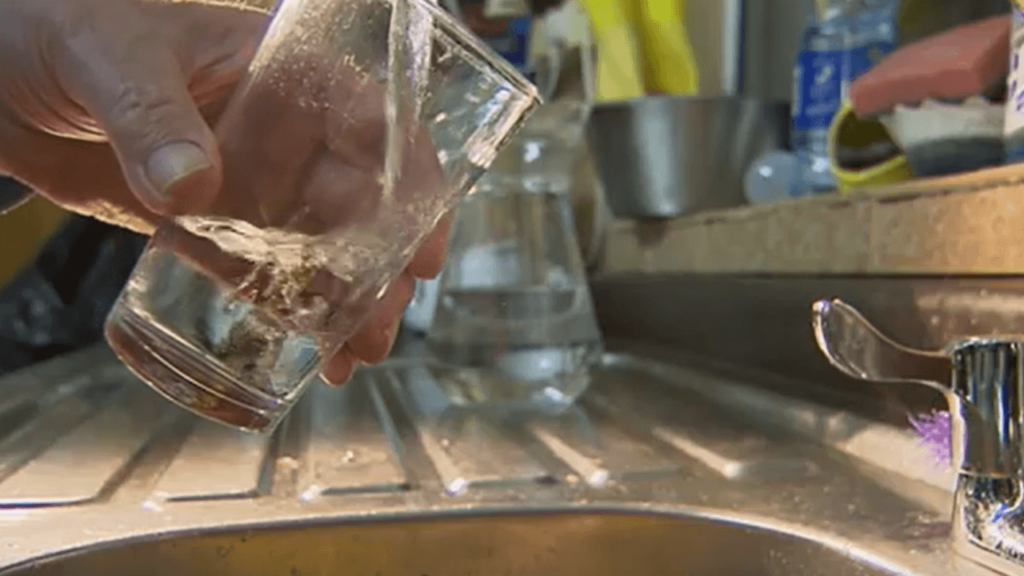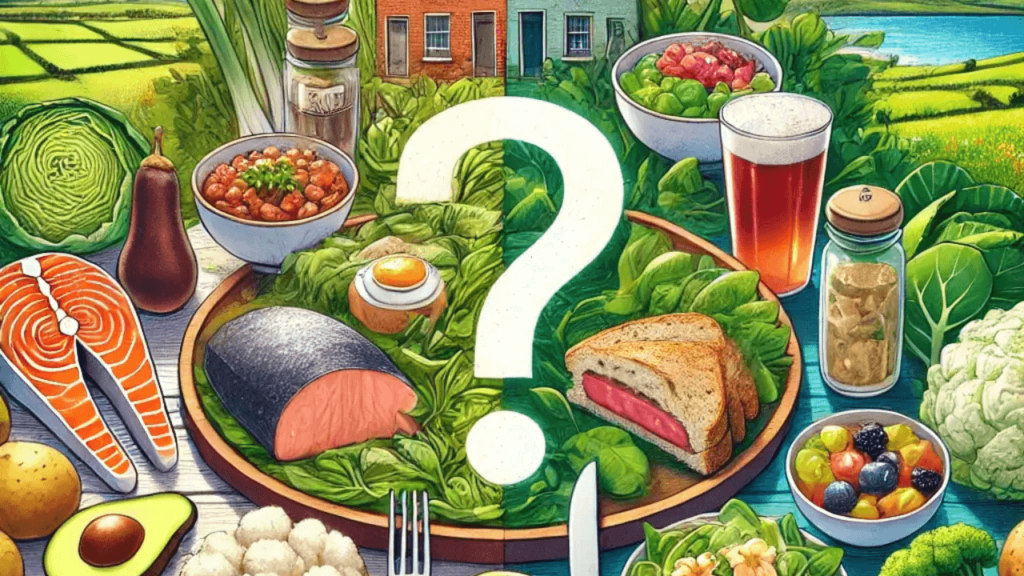If you’re planning a trip to Dublin, or even if you live there, one of the first questions that might pop into your mind is: Can I drink the tap water in Dublin? In this blog post, we’ll dive into everything you need to know about Dublin’s tap water. We’ll answer your questions simply and clearly, so you can feel confident about drinking or avoiding it. Let’s get started!
Is Dublin Tap Water Safe to Drink?
The Short Answer: Yes, It Is Safe
Yes, you can drink tap water in Dublin! The city’s tap water is treated to meet European and Irish drinking water standards, which means it is considered safe for human consumption. Most people in Dublin drink tap water every day without any problems. Dublin follows strict guidelines to make sure the water is free of harmful bacteria, chemicals, and other contaminants.
Why Is Dublin’s Tap Water Safe?
Here are a few reasons why Dublin tap water is considered safe to drink:
- Water Treatment Process: Dublin’s water is treated in modern facilities that use advanced methods to purify and filter the water.
- Regular Testing: The water quality is tested frequently to ensure that it meets the required standards. This helps keep harmful substances like bacteria, chemicals, or heavy metals under control.
- EU Standards: Ireland follows European Union standards for water safety, which are known for being stringent and ensuring high-quality water.
How Is Dublin Tap Water Treated?
Dublin has several water treatment plants that purify water from rivers, lakes, and reservoirs. Here’s a simple breakdown of the process:
- Collection: The water is taken from sources like rivers, lakes, and reservoirs.
- Screening: The water goes through filters to remove big objects, such as leaves and dirt.
- Coagulation and Flocculation: Chemicals are added to bind smaller particles, making it easier to filter them out.
- Filtration: The water passes through layers of sand and gravel to remove even smaller particles.
- Disinfection: Chlorine is added to kill bacteria and other harmful microorganisms.
- Testing: The water is tested to ensure it meets the required standards.
Water Quality in Dublin: What You Should Know
Quality Standards
Dublin’s water quality must meet standards set by the Environmental Protection Agency (EPA) of Ireland, as well as the European Union Drinking Water Directive. These regulations make sure the water is:
- Free from Harmful Bacteria: Tests are done to make sure there are no harmful bacteria in the water.
- Low in Contaminants: The level of contaminants like heavy metals or nitrates must stay below strict limits.
- Adequately Disinfected: Chlorine is used to ensure the water is safe, but the level is kept low enough to be safe for people.
What Does the Water Taste Like?
Many people notice that Dublin tap water has a distinct taste of chlorine. This is because chlorine is used to disinfect the water and make sure it remains free from harmful bacteria. The taste can be a bit stronger compared to bottled water or water from other sources, but it’s completely safe to drink.
- Tip: If the chlorine taste bothers you, you can fill a jug of tap water and let it sit in the fridge for a few hours. The chlorine will naturally dissipate, leaving the water tasting better.
Where Does Dublin Tap Water Come From?
The water supply in Dublin comes from a combination of sources, including:
- Rivers: The River Liffey, the Dodder, and other rivers provide a significant portion of Dublin’s water.
- Reservoirs: Dublin relies on reservoirs such as Poulaphouca Reservoir (also known as Blessington Lake) to store water.
- Groundwater: Some of the water is also sourced from underground aquifers.
| Source | Percentage of Supply |
|---|---|
| Rivers | 60% |
| Reservoirs | 30% |
| Groundwater | 10% |
Is Dublin Tap Water Hard or Soft?
Dublin’s tap water is considered moderately hard. This means that it has a moderate amount of minerals like calcium and magnesium. Here’s what that means for you:
- Positive Aspects: Hard water is rich in minerals, which can be good for your health. Calcium, for instance, is beneficial for your bones.
- Negative Aspects: You might notice limescale build-up on your kettle or other appliances. This is a common occurrence with hard water and can be easily managed by regular cleaning.
Tips for Dealing with Hard Water
- Use Vinegar: If you see limescale on your kettle, soak it with a mixture of vinegar and water to get rid of it.
- Install a Filter: You can also install a water softener or filter to help with the hardness.
Common Concerns About Drinking Dublin Tap Water
Chlorine Taste
As mentioned earlier, some people don’t like the chlorine taste in Dublin’s tap water. Letting the water sit for a while or using a water filter can help reduce the chlorine taste.
Lead Pipes
In older areas of Dublin, some houses might still have lead pipes. Drinking water that passes through lead pipes can be unsafe, especially for children and pregnant women. If your home has lead pipes, it’s recommended to:
- Get a Test: Have your water tested for lead.
- Use a Filter: Use a filter specifically designed to remove lead.
- Replace the Pipes: Consider replacing lead pipes if possible.
Boil Notices
Sometimes, due to issues with the water treatment system or contamination, Dublin may issue a boil water notice. This means you should boil your tap water before drinking it or using it for cooking. Boil notices are not very common but can happen, especially after extreme weather events.
- Tip: Always keep an eye on local news or visit the Irish Water website for updates on boil water notices.
Pros and Cons of Drinking Tap Water in Dublin
Pros:
- Affordable: Tap water is much cheaper than buying bottled water.
- Environmentally Friendly: Drinking tap water helps reduce plastic waste.
- Convenient: You can access it directly from your tap, making it easy to stay hydrated.
Cons:
- Chlorine Taste: Some people don’t enjoy the taste of chlorine.
- Potential for Lead Pipes: Homes with old pipes may have lead contamination.
- Hard Water: The presence of minerals can lead to limescale build-up.
Alternatives to Drinking Tap Water in Dublin
If you prefer not to drink tap water, there are other options:
- Filtered Water: You can use a water filter to improve the taste and quality of your tap water. Filters can remove chlorine, heavy metals, and other impurities.
- Bottled Water: This is also an option, though it is more expensive and less environmentally friendly.
- Boiled Water: Boiling tap water is another way to ensure it’s safe, especially if there’s a boil notice or if you just want to be extra cautious.
Water Filters: Are They Necessary in Dublin?
Water filters are not strictly necessary in Dublin since the tap water is safe to drink. However, many people use them to:
- Improve Taste: Filters can help remove the chlorine taste.
- Remove Impurities: If you’re worried about heavy metals or other contaminants, a good quality filter can provide extra peace of mind.
Types of Water Filters:
- Activated Carbon Filters: These are great for removing chlorine and improving taste.
- Reverse Osmosis Filters: These can remove a wide range of impurities, including heavy metals.
- Water Pitchers with Filters: Easy to use and great for improving taste.
Dublin Water Compared to Other Cities
Dublin vs. Other Irish Cities
- Cork: Tap water in Cork is also considered safe, but it may taste different depending on the source and treatment methods.
- Galway: Galway’s water is generally soft, meaning it has fewer minerals compared to Dublin.
Dublin vs. International Cities
- London: London has very hard water, even harder than Dublin’s. It also uses chlorine, which affects the taste.
- Paris: Tap water in Paris is soft and often has a less noticeable chlorine taste compared to Dublin.
| City | Water Hardness | Chlorine Taste | Safety Level |
| Dublin | Moderate | Noticeable | Safe |
| London | Hard | Strong | Safe |
| Paris | Soft | Mild | Safe |
FAQs About Dublin Tap Water
1. Can I Brush My Teeth with Dublin Tap Water?
Yes, it is completely safe to brush your teeth with tap water in Dublin. The water is treated and safe for use.
2. Can Tourists Drink Dublin Tap Water?
Absolutely! Dublin’s tap water is safe for both locals and tourists to drink. It’s treated to meet international safety standards.
3. What Should I Do if I Don’t Like the Taste?
If you don’t like the chlorine taste, consider using a filter or letting the water sit in the fridge to let the chlorine evaporate.
4. Are There Any Health Risks?
There are no major health risks if you are drinking tap water in Dublin, as long as your plumbing doesn’t include lead pipes. If you’re unsure, you can get your water tested.
Conclusion: Should You Drink Dublin Tap Water?
Yes, you should feel confident drinking Dublin’s tap water. It is safe, affordable, and environmentally friendly. The city follows strict water safety standards, and the water is tested regularly to ensure it’s clean and safe for consumption.
However, if you’re sensitive to the chlorine taste, there are ways to improve it. You can use a water filter, let the water sit for a while, or even use bottled water if you prefer. Just remember that drinking tap water is one of the easiest ways to stay hydrated while being mindful of the environment.
Summary Table
| Aspect | Information |
| Safety | Safe to drink, follows EU standards |
| Treatment Process | Includes filtration and disinfection |
| Chlorine Taste | Noticeable, can be reduced with filters |
| Water Hardness | Moderately hard |
| Health Concerns | Lead pipes in older homes may be a concern |
| Alternatives | Filters, bottled water, boiling |
Key Takeaways:
- Dublin’s tap water is safe for drinking and used by most residents.
- The water is moderately hard, which might cause limescale in kettles.
- You might notice a chlorine taste, but it’s safe and can be reduced.
Feel free to enjoy Dublin’s tap water and stay hydrated while exploring the city!
If you have more questions about Dublin’s tap water or need tips on staying hydrated while traveling, drop a comment below or share your experiences!

Hi, I’m Tanvir, the founder and author of Explore Ireland Now. With a deep love for Ireland and its rich culture, history, and landscapes, I created this site to share everything that makes this beautiful country worth exploring. Whether you’re a local looking for hidden gems or a traveler planning your next adventure, I provide insightful guides, tips, and recommendations to help you experience Ireland to the fullest.
From stunning landscapes to vibrant cities and quaint villages, Ireland is full of wonders waiting to be discovered. Through my personal experiences and research, I aim to bring you the most up-to-date information and inspiration for your journey.
Thank you for visiting Explore Ireland Now—I hope my content helps you uncover all that this incredible country has to offer! If you have any questions or need travel advice, feel free to reach out.



